You Could Retire with Millions Thanks to Leek and Potato Soup
My day was spent reviewing my household portfolios and running certain valuation scenarios to select which areas we are going to target for additional investment this year. Besides finding cheap or fair valued assets, I am strategic about how a new holding fits into the overall scheme of the estate. I want things to balance in a non-correlated way so that disaster in one area of the economy does not necessarily spill over into another area.
Once that was done, it was another night of testing peasant dishes from French cuisine. This round included a Leek and Potato Soup with carrots, turnips, and a small amount of cream. The entire pot couldn’t have more than 900 calories in the aggregate but it was delicious and cost less than $7.
What struck me, besides how excellent the soup tasted, was how relevant it could still be today. If you had three kids and a stay-at-home spouse, were the sole breadwinner, and were struggling financially, the difference between spending $30 at McDonald’s and $7 eating at home is massive. You’re talking about a net $23 in after-tax earnings. Do that once a week, suddenly you have an extra $1,200 in after-tax savings. Set aside at average rates of return for 50 years, which would put you in retirement, that is an extra $1,400,000 in wealth. If inflation ran the same as it has for the past century, it would have the equivalent purchasing power of $200,000 today. A few small changes, over long periods of time … that story never gets old to me. It’s a miracle how consistent, and how powerful, it is. Changing your habits once a week is not some Herculean task. You can start with baby steps. You don’t have to go extreme; wade into the water and start reaping the rewards.
I know an older woman who used that approach after being wiped out in her fifties. She kept her costs low and sent as much money as she could into the bank to pay off her mortgage. Once she was debt-free, which took her a few years, she then piled up the cash in the bank and started buying up the houses in her neighborhood. Now she’s sitting on seven figures worth of property and collecting six-figures a year in rent and other investment income. She hardly ever ate out and part of the reason she was able to save so much was she could grab a few vegetables and ingredients from the store to make food at home. I think it was a generational thing. All of my older relatives who are the same age act much the same way as a result of The Great Depression. You’re a lot more careful with capital when you realize how vulnerable your standard of living can be. If you’ve lived through an economic disaster once, you tend to arrange your affairs in a way that you can survive even if the world went to hell in a handbasket.
The funny thing is, it’s not even hard. You wouldn’t have to know how to cook to make the leek and potato soup. You boil the vegetables in salt water, purée them in a blender, put them in a soup tureen, add in either cream or butter (your choice), and serve with a bit of parsley and / or chives on top. It would have been common when the only thing a worker could afford would be a few vegetables at market or from the garden, yet you had to put supper on the table. Even someone who burns toast could do it. The recipe takes only a few paragraphs to explain and is on pages 37-38 of Mastering the Art of French Cooking, Volume I.
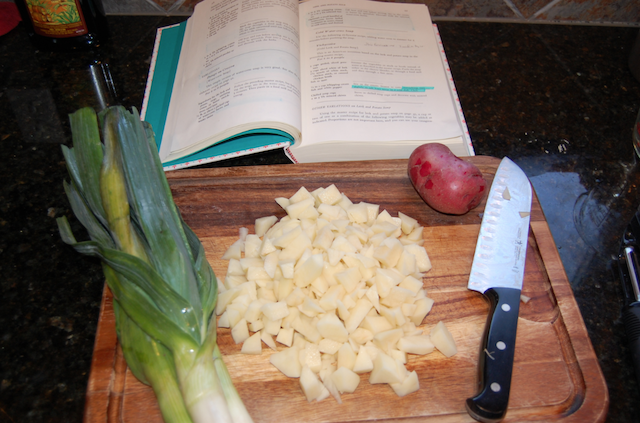
The ingredients included leeks, potatoes, water, salt, turnips, carrots, and a little bit of cream.
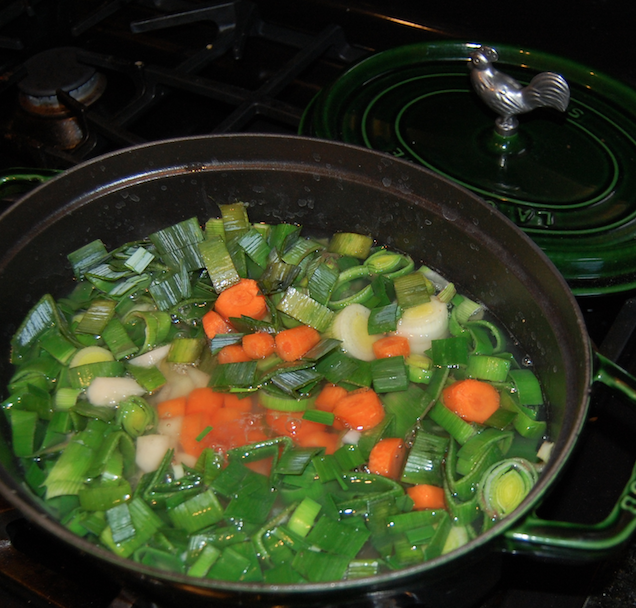
The first steps of the leek and potato soup from Julia Child’s French cookbook. It is one of the famous so-called peasant dishes that costs next to nothing to make, yet tastes delicious. It’s also remarkably healthy. If Americans ate more like this, there would be far less heart disease and cancer.
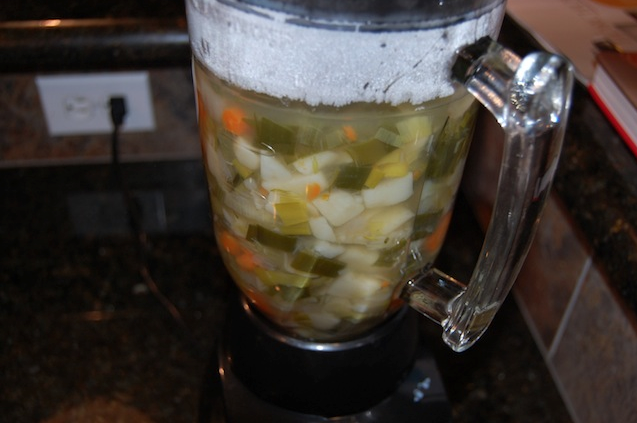
After cooking for an hour, the mixture has to be put into a blender to purée.
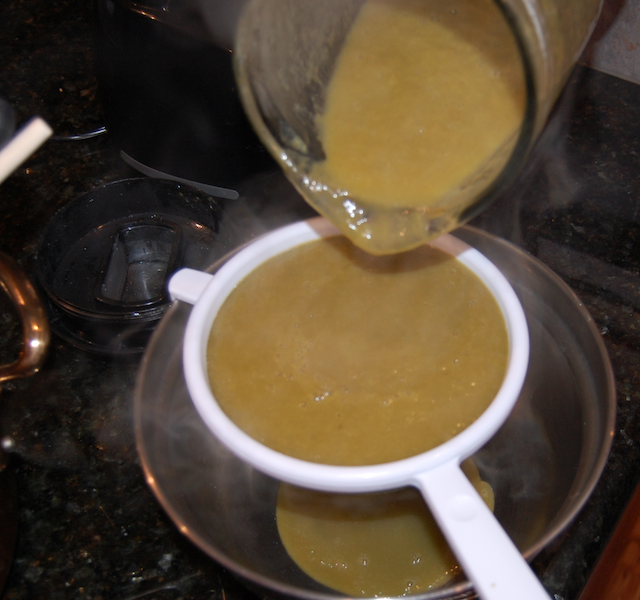
Once finished, the leek and potato soup is strained through a fine mesh sieve to remove any remaining thick pulp.
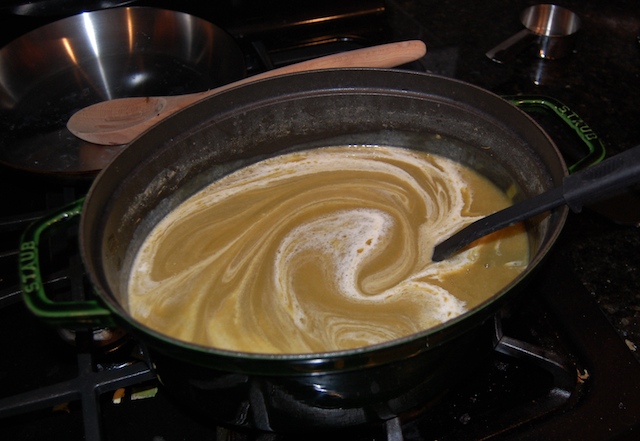
You add it back into a pot or soup tureen, off heat, and stir in 4 to 6 tablespoons of cream or butter – whichever you prefer.

Once it’s finished, you pour it into bowls and serve quickly, garnishing with parsley and / or chives. It’s a similar flavor to baked potato soup but with more onion. You can actually substitue yellow onion for leek if you don’t have the right ingredients at home. It’s an incredibly versatile dish.
I’m off to finish some more work. I’m probably going to make a pot of coffee and spend most of the night reading in my home study.


